On a Friday afternoon this winter, Daniele Macuglia was grocery shopping for an upcoming Italian meal at International House at the University of Chicago. The PhD student was preparing for a weekly dinner for graduate students that showcases the cuisine and culture of a specific country.
International House has hosted internationally focused programming since it opened in 1932. A new partnership spawned by the launch of UChicagoGRAD in 2015 is focused on specifically shaping I-House offerings for graduate students and postdocs.
“I really appreciate UChicagoGRAD,” said Macuglia, who has the lead Grad Global Impact Internship, a program which provides opportunities for graduate students and postdocs, at I-House. “I value the collaboration. We are doing all we can to offer good, enriching opportunities for cross-cultural understanding, and to build a community here with new traditions.”
This year, the collaboration between UChicagoGRAD and I-House has gained momentum as several new initiatives have launched. The Graduate Commons Program, a collection of programs designed for graduate students and postdocs, includes internationally focused public programs through the Global Voices Performing Arts and Lecture Series, weekly language and culture tables, professional development opportunities, health and wellness programs, and social activities. Also offered by the partnership are fellowships, internships and a summer housing program for graduate students.
“We have activities going on here every day, and that doesn’t include the regular, ongoing, public Global Voices program,” said International House Director Denise M. Jorgens, AM’83, PhD’95, who lived at I-House as a student. “All the events in the Graduate Commons Program are for graduate and professional school students, except Global Voices, which includes about 200 major public events every year. This year we started adding programming on to these, like a separate meeting or gathering just for graduate students and postdocs.”
The partnership between UChicagoGRAD and I-House “is a natural fit,” said Jorgens. “The creation of UChicagoGRAD marked an increased recognition that graduate students and postdocs, who are often isolated within their departments and programs, are eager to interact with peers across fields of study. Graduate students and postdocs also need the same support that undergrads need: recruitment skills and experience, career development, and communication skills and teaching.”
The partnership, Jorgens added, furthers I-House’s mission to be a place that builds community and encourages UChicago students and scholars to engage with ideas and approaches from around the world.
New opportunities
In addition to the activities, International House now grants 25 GRAD Fellowships and 10 GRAD Global Impact Internships each year. Applications can be found on the new GRAD Life pages of the I-House website.
Information about the new Summer Housing Program is also available online. Starting in summer 2017, the program provides housing and programming to approximately 150 UChicago graduate students and postdocs, trainees and interns, visiting scholars, and postdoctoral researchers on campus during the summer months.
Rajab Ghazzawi, a Harris Public Policy student from Lebanon, has won both an I-House internship and a fellowship. He works across campus on programming for graduate students and postdocs, as well as on events for I-House. “We’re working on building audience and participation,” Ghazzawi of the new initiatives. “And we’re still testing to see what’s working. So far, we know the UChicagoGRAD language events and dinners are a big success.”
Autumn Quarter’s kickoff event for the Graduate Commons Program, an Oktoberfest for all new graduate students, drew nearly 1,000 people to I-House for food, drinks and entertainment.
And while 1,000 students is a large gathering, it’s only a percentage of the graduate students and postdocs at UChicago. The University has more than 70 departments across 11 academic divisions and professional schools, nearly 10,000 graduate and professional students, and 600 postdocs.
“UChicagoGRAD was established to complement the discipline-specific training that graduate students and postdocs receive in the academic units,” said Brooke Noonan, executive director of UChicagoGRAD Experience. “We aim to provide training that prepares grads and postdocs for success at UChicago and as professionals.”
Since its inception two years ago, UChicagoGRAD has developed resources to include fellowship advising, writing support, career development, pedagogical training and public speaking. This winter the office moved to a new location on the third floor of the UChicago Bookstore building.
One of UChicagoGRAD’s annual events, the GRADUCon conference, attracts nearly 400 graduate students and postdocs each spring. A day of professional education and networking expressly tailored to young researchers, the event also provides panel discussions with faculty, staff and alumni, as well as one-on-one interviews and career exploration opportunities.
A new event in 2015 was the GRADFair, UChicago’s first-ever career fair dedicated to graduate students and postdocs from all academic disciplines. In 2016, the event drew approximately 500 attendees from more than 70 programs and departments. A pre-fair lunch for faculty and employers was organized to foster discussion on the value of a graduate degree in diverse career sectors.
“GRADfair is our new flagship conference,” said Noonan. “This year we partnered with I-House and hosted more than 50 employers from industry, nonprofits and government organizations.”
Other UChicagoGRAD programs include health and wellness programming in conjunction with UChicago Student Health and Counseling Services, talks on financial literacy in collaboration with the Office of the Bursar, and yoga and cooking classes in conjunction with I-House.
“It’s going well,” said Ghazzawi. “We’re building, testing the programming and looking at successes. I learned good old American positivism here, and I feel positive.”
“We’ve made a lot of progress over the last year,” said Jorgens, pointing to the more than 75 programs I-House offered over the first 10 weeks of the academic year.
But most importantly, “we want graduate students to feel welcome at I-House,” said Sylvie Zhuang, a second-year Chinese student in the School of Social Service Administration. Last fall, Zhuang was named the first Kaimay Yuen Terry Fellow at I-House. She helps develop and promote programming suited to the needs of graduate students.
“We’re especially trying to get first-year graduate students involved and make them feel included,” Zhuang said. “We are very friendly. Friendship has been the most important part of I-House for me.”
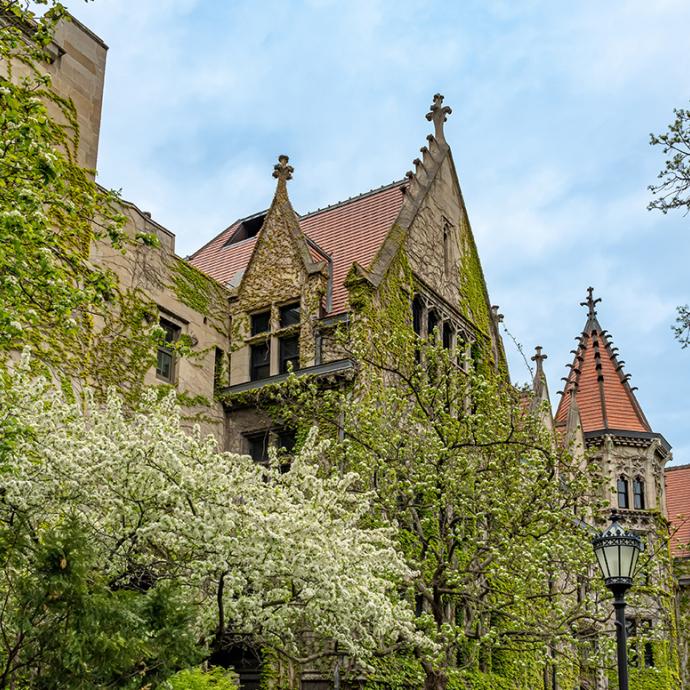

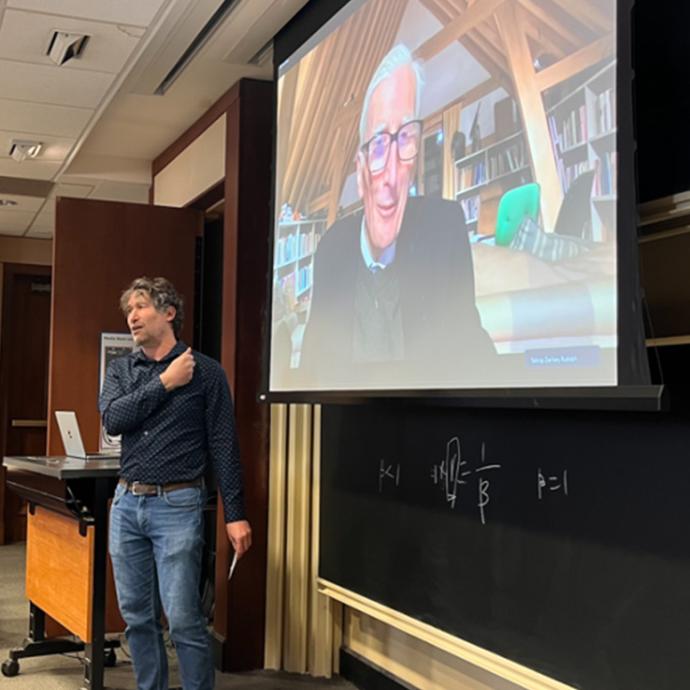
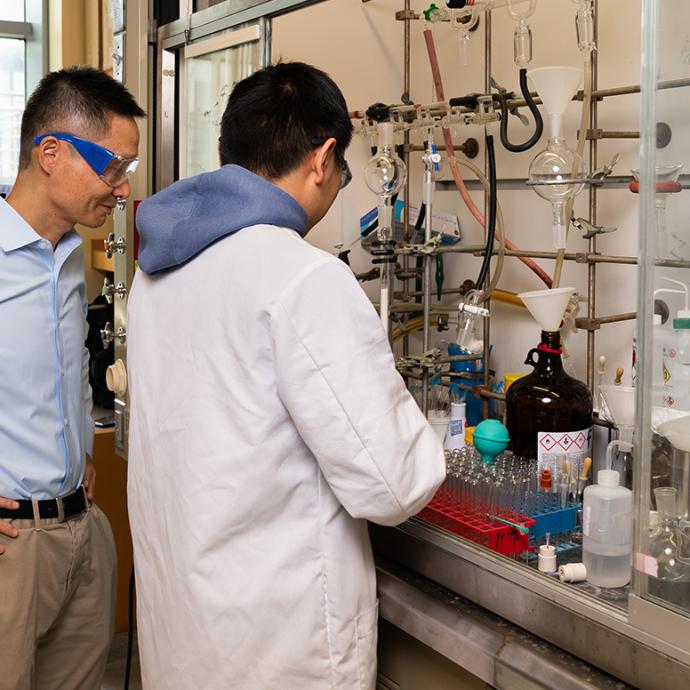

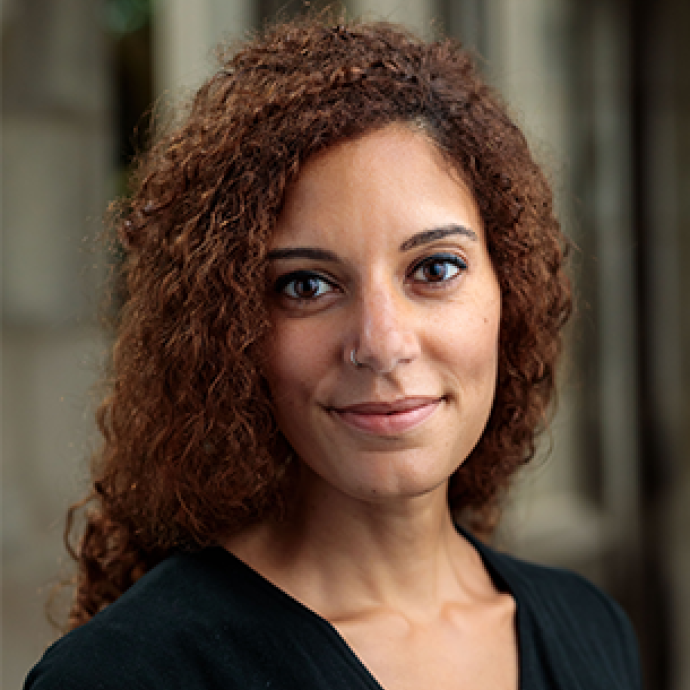
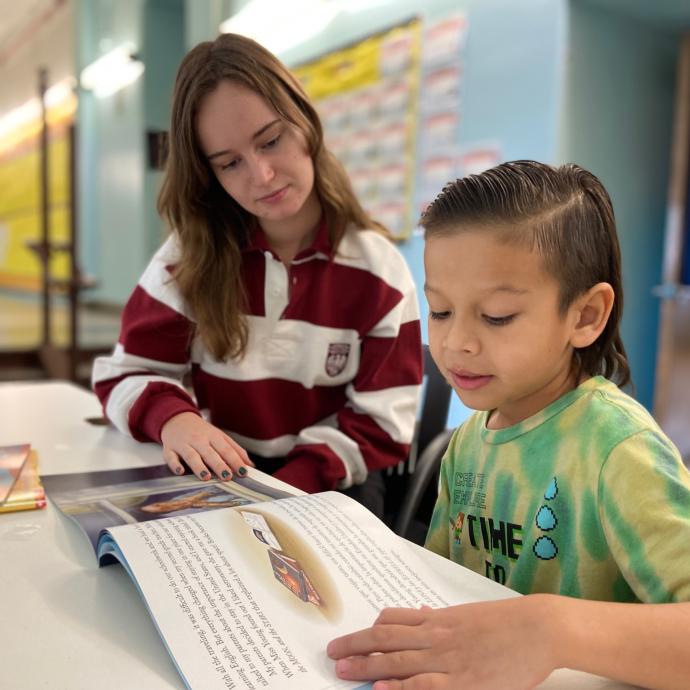



 —Prof. Chuan He
—Prof. Chuan He
